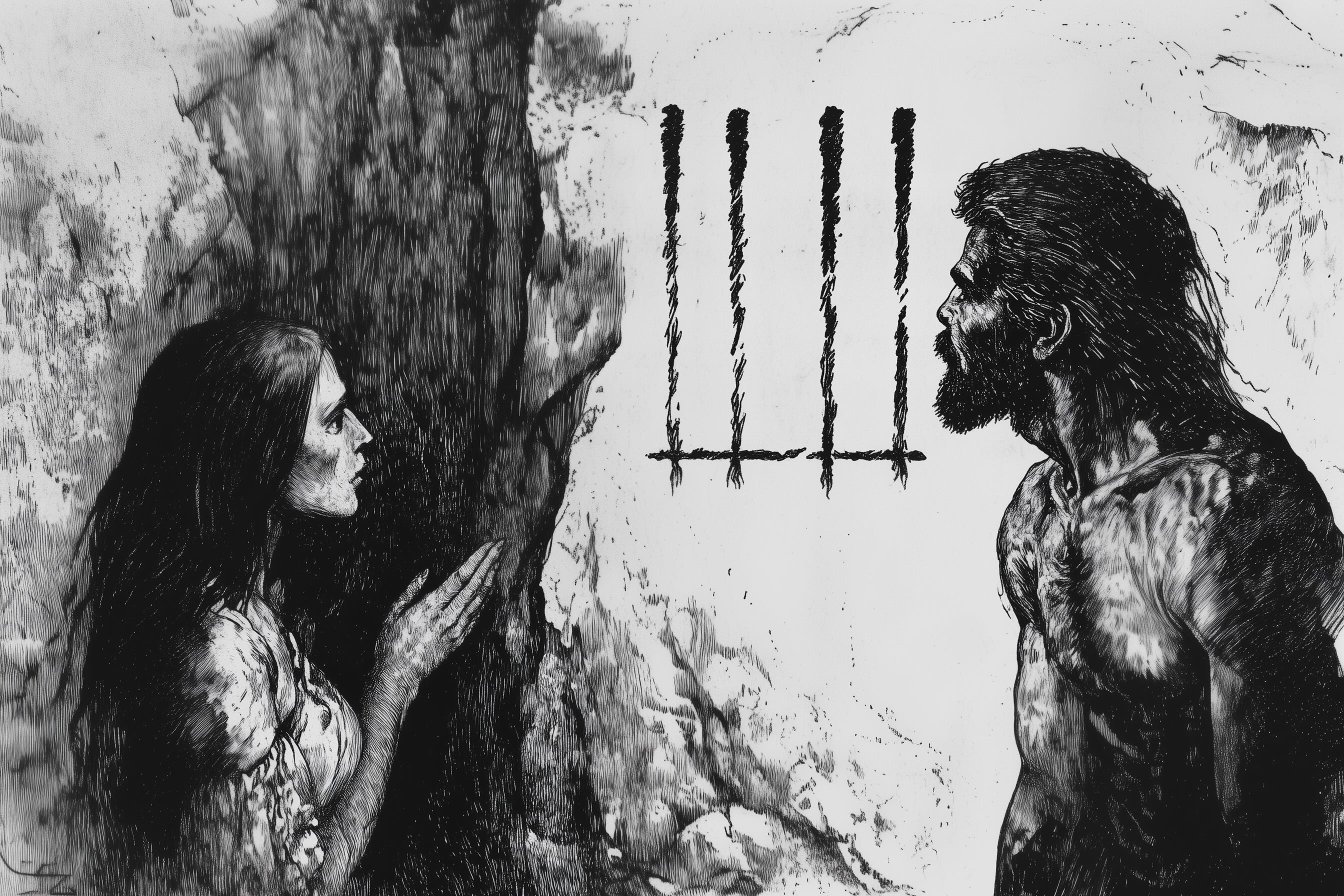I. T(o)R(ah) part 1: Parting with alter egos. Tranching is an art: beware of errors !
We dance with each other We chase each other We hate each other, we tear each other apart We destroy, we desire each other But in the end We come to realize We're always on our own in the world (always on our own) Les uns contre les autres, Michel Berger
Hold on ... Oh, we're rolling! Hi folks ! « Salut la compagnie » !
Sorry, but ever since our family visited the caves of Lascaux and the rock shelters of Laugerie Basse last summer, I can't stop thinking about our Paleolithic ancestors who slept against each other, and how they sometimes hated each other and tore each other apart, especially when food wasn’t parted « fairly ».
What are you saying? I'm a little obsessed with the concepts of sharing, or more archaically speaking, parting? Now that you mention it, indeed I already talked about sharing in my video on the origin of the word « symbol » and the Greek « symbolon ». And you’re right, in my video on the covenants that we more often « tranche » than we knit (let’s be bold and use the financial vernacular « tranche », since it is the closest to the French « trancher », meaning to sever, to slice, to cut into pieces. Think of « trench » or « trenchant » in English). Remember, this video where I had an unleavened bread in one hand, and I told you how I had confused the expression « KaReT BeRiYT », to sever a covenant in Hebrew, for the expression « Charter Party ».
Really, what do I have with sharing? Well I can't help it : this concept is litteraly everywhere! Look at this symbol: a rectangle cut into several pieces, sometimes in different colors. It’s all over the caves in Lascaux, and it's a symbol of sharing! How do I know this? Well, simply because this symbol represents the Torah, of course! Yes, you heard me right, the Torah, the Old Testament.
I beg your pardon? What's the connection between the Torah, probably written 3,000 years ago in Israel, and the concept of parting in the French Périgord region 20,000 years ago? The connection, my friends, is linguistic. Yes. Linguistic. The magnificent paintings of Lascaux have captivated many paleoanthropologists, but until now, no one had realized that they weren't just drawings, but also sounds and words. And the foundational Paleolithic word is « ToWRaH » or « Ta Ra », as you wish, and this symbol marks the moment when our ancestors became aware of the language they had been unconsciously using for tens of thousands of years.
You find it hard to believe me? It won't be the first time. Just bear with me. In this video, we're going to get to the heart of « Ta Ra ». And you'll also understand why your business needs a management system designed to distribute and share (« par.ta.ger » in French) value within its ecosystem.
See you in a minute!

I will, while I have power and strength, teach men to seek after Right. Gathas 1, 4, Zarathoustra (-1500 ?)
Hello, my name is Emmanuel Ifergan and, since 2014 – it’s been 8 years now – I've been developing a solution designed to facilitate cooperation between businesses. Since 2018, I have spoken, unsuccessfully, to hundreds of leaders of large French companies, explaining that bureaucracy, inertia, and demoralization are directly linked to the centralization of their management processes. And yet, despite all my efforts, not a single large French company has been able to even test this new approach.
What's stopping them? Mostly, the inability of large corporations to open to the outside world. Because opening a company is much trickier than it seems. It's an « interdisciplinary » subject, involving the finance, legal, purchasing and transformation departments, not to mention the operational business units; a task so immense that the CEOs themselves feel utterly helpless.
It is because I was facing such a roadblock that in 2020, as the country was in full lockdown, I chose to address the wider public to explain the huge significance of cooperation and fluidity of inter-company exchanges.
At first, this vulgarization focused on IT, law and management - fields I knew very well as I had practiced them for over 20 years. Gradually, however, my field of investigation broadened to include linguistics and anthropology, without ever losing sight of my primary purpose: to unleash the potential of organizations through cooperation.
Until, one day in autumn 2021, I discovered, in a moment of revelation, that the roots of the wording of contractualization and cooperation sprang from the depths of the history of our species - a discovery you won't hear the last of 😉
Now, let's get to work!
